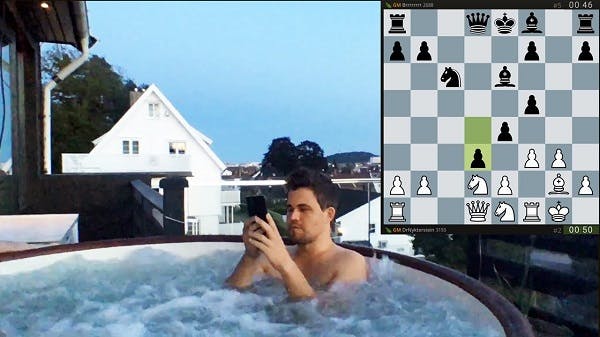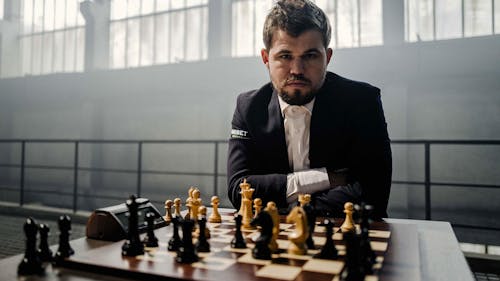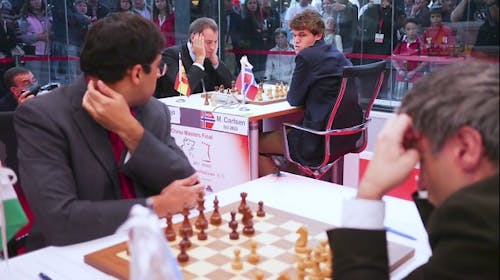Are you sure you want to delete your account?
(This will permanently delete all of your data - purchases, game scores, ratings, etc)
Change your username
Your current username is: guest
Change your account email address
Your current account email is:
Redeem your Fampay code here!
Use your Fampay code to get access to the Play Magnus Plus Membership!

Choose Your Chess Activities According to Your Energy Level
The life of a chess professional revolves around chess training. When Grandmasters formulate their recommendations for club players, they often forget that not everyone can afford to dedicate a large number of hours per day to chess studies, allocating the cream de la crème spots on one’s schedule for them. As an amateur, you typically have to improvise on the go, taking a chance to practice chess a bit in the morning, a bit on the road, a bit in the evening, and so on.
Obviously, in some of the above-mentioned scenarios, you won’t be in your best shape mentally and physically. Both amateurs and pros have their ups and lows in terms of energy. Some chess activities are more demanding than others. How does one make one’s studies more efficient?
When you are feeling fresh and motivated, for example, in the morning, consider taking on the most challenging tasks:
• Playing training games, such as matches against Play Magnus characters or online rapid/blitz/bullet at Chess24.com.
• Playing or studying blindfolded, such as the Mind Mirage mini-game in Magnus Trainer.
• Solving chess puzzles in a competitive environment, such as the Tactics Frenzy app in timed mode; The Raja’s Riddles, Juiced Up, Trail Blazer mini-games in Magnus Trainer, etc.
• Intensively analyzing your games alone or with a training partner. The emphasis is on thinking for yourself instead of relying on the computer prompts.
• Memorizing chess variations.
• Doing “guess the move” challenges, such as the ones in the corresponding section of Magnus Trainer, where you have to think a lot pretty much on every move.
When your energy tank is half-empty (or half-full, depending on your level of optimism!), for example, in the middle of the day, you can try out the following chess activity types:
• Studying chess lessons and solving some complementary exercises, such as the ones in the Magnus Trainer app.
• Casually going over your games to catch major blunders and decide which openings need improvement, usually performed using a chess engine.
• Solving tactics in a relaxed atmosphere, such as the study mode of the Tactics Frenzy app
• Mix chess with fun, such as trying out the Knight Runner app.
• Rehearsing chess variations that you have previously learned.
When you are feeling exhausted or in the low, for example, when you get back home late after a full day of work and a training session in the gym, you can still make good use of your free time:
• Organizational matters: planning your future studies & tournaments, buying chess products, booking chess coaching sessions, making notes in your chess diary, etc.
• Watching an online broadcast/video at Chess24.com or a chess video in one of the courses at Chessable.com.
• Briefly going through recent games from top tournaments, played by your friends and so on, just for enjoyment and getting a general feel of how they proceeded.
• Technical tasks: copying variations from an app to your personal openings files, downloading the latest game updates for your chess database, etc.
• Chess-related reading: biographies of chess players, online news, New in Chess magazine, Play Magnus blog, etc.
This list is by far not exhaustive, but it still gives you a sense of how to manage your chess training efficiently, making optimal use of all the spare time that you have, regardless of your current energy level.
In the past, I often used to make the mistake of, for instance, starting the day by watching stultifying DVDs with lots of long computer variations, which would lead to terrible blunders and slow-thinking in my sparring games later on the same day. As a rule of thumb, one should start with the most challenging activities and end with the least demanding, not vice versa.

